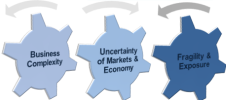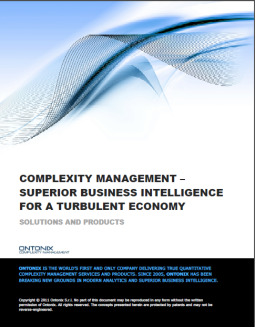Gawande:: to err is human [or don’t mess with complexity!]
Tuesday, 16 April, 2013 Leave a comment

@atul_gawande by pixbymaia (Photo credit: pixbymaia)
OK, so this isn’t quite what Atul Gawande says in his excellent book, ‘The Checklist Manifesto’ (link to title on Amazon) but, when highly skilled people whom we trust to see us across thousands of miles of open sea in an aircraft or through a critical 6 hour surgery, it may as well be! It is a strikingly similar message to that promoted by Nassim [Black Swan] Taleb and, implicitly, by Ontonix.
I don’t know about you but, if I am going on a transatlantic flight, under the knife or entrusting a lifetime’s worth of savings to an expert, I really don’t care that they may use a checklist to improve their chances of success! Rather that than rely upon a fluffy mascot, lucky bandana or some other such nonsense! Read more of this post











